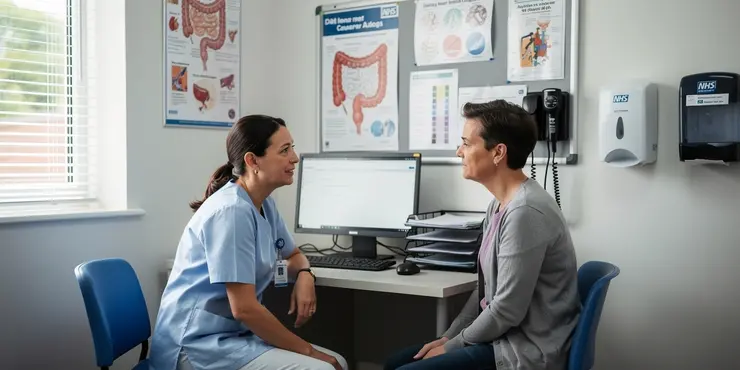
Find Help
More Items From Ergsy search
-
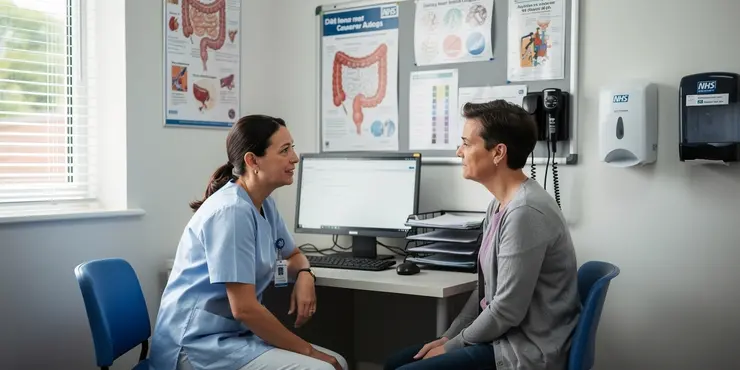
How is the stage of bowel cancer determined?
Relevance: 100%
-
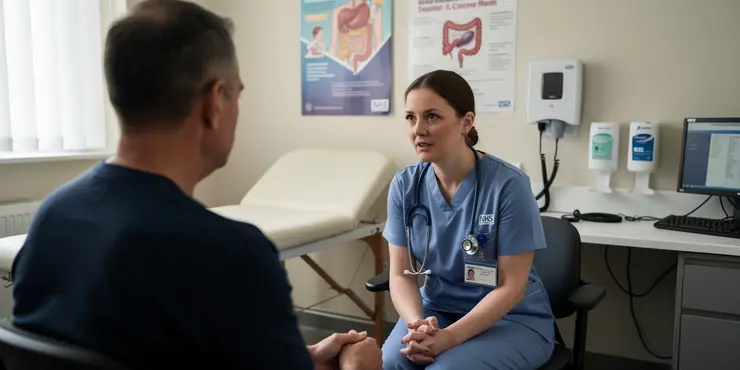
What is the survival rate for bowel cancer?
Relevance: 60%
-
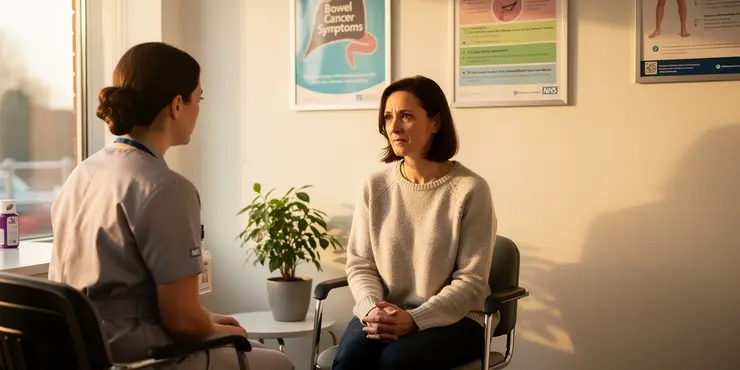
What is Bowel Cancer?
Relevance: 57%
-
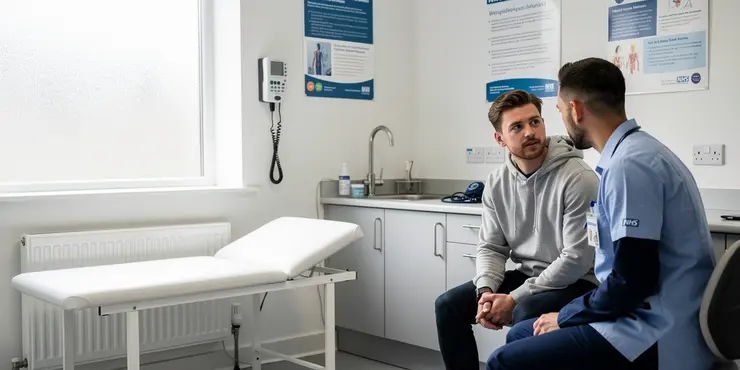
What are the stages of testicular cancer?
Relevance: 56%
-
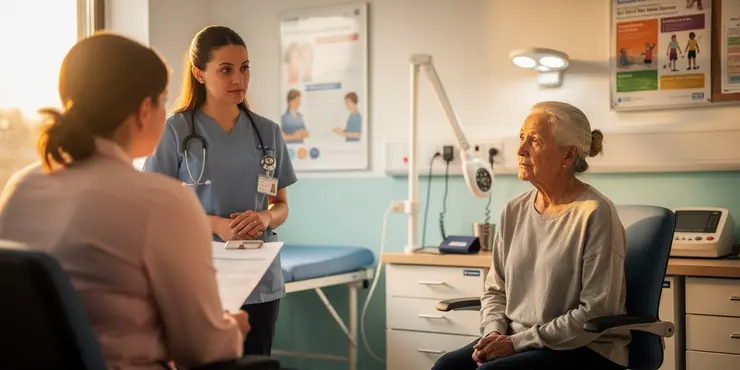
Bowel cancer - Symptoms and signs to look out for
Relevance: 54%
-

How common is bowel cancer?
Relevance: 54%
-

What factors determine the treatment plan for prostate cancer?
Relevance: 52%
-

What treatment options are available for bowel cancer?
Relevance: 52%
-
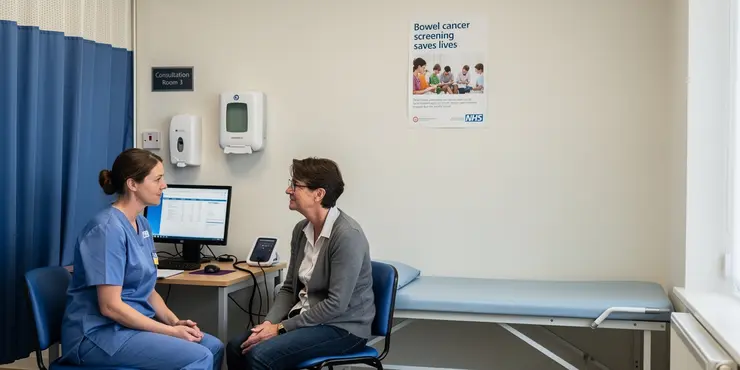
How does increased screening impact bowel cancer statistics?
Relevance: 51%
-
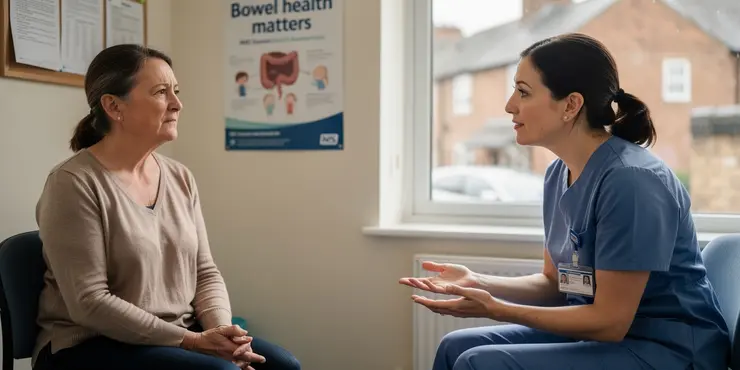
Can bowel cancer spread to other parts of the body?
Relevance: 51%
-
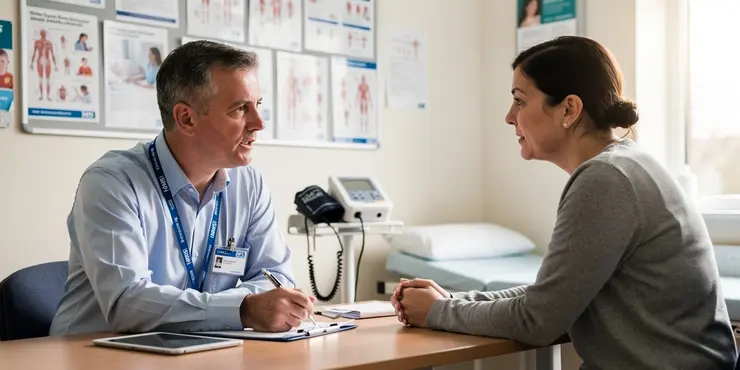
Why is there a surge in bowel cancer?
Relevance: 50%
-
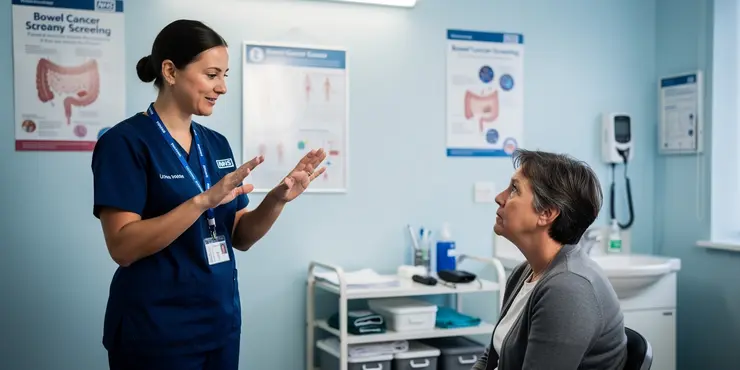
Learn about bowel cancer (British Sign Language version)
Relevance: 50%
-
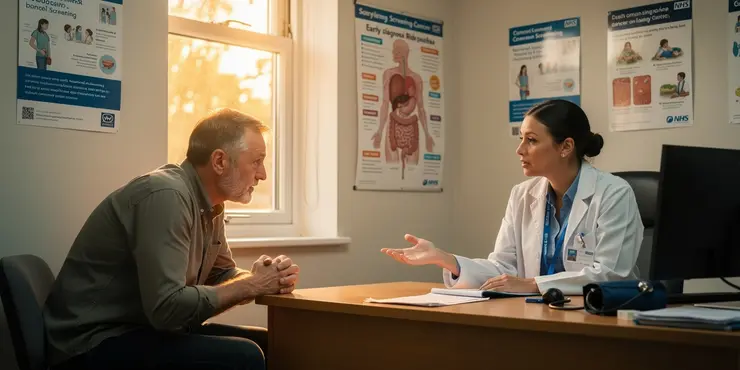
How is bowel cancer diagnosed?
Relevance: 50%
-
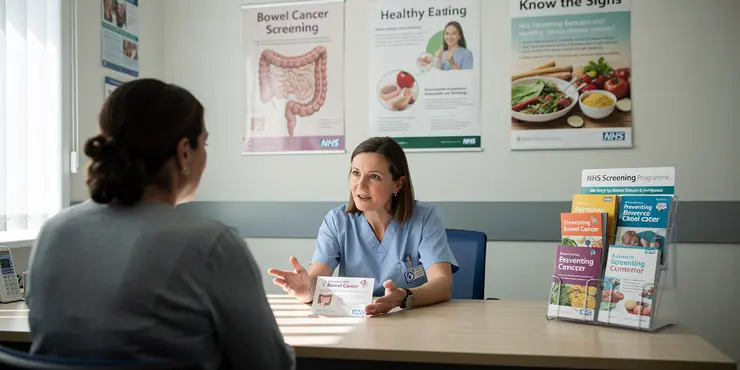
Can bowel cancer be prevented?
Relevance: 49%
-
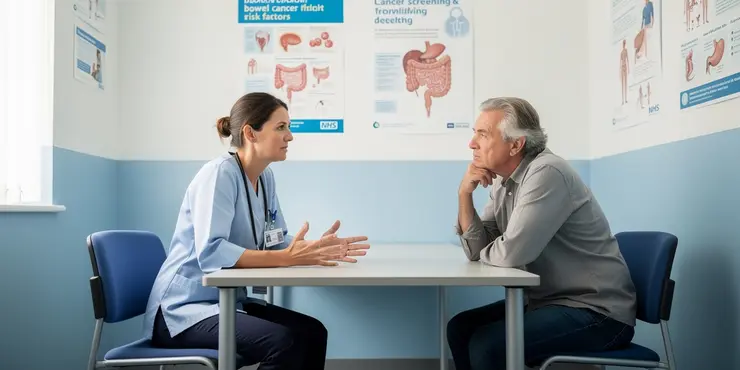
What are the risk factors for bowel cancer?
Relevance: 47%
-
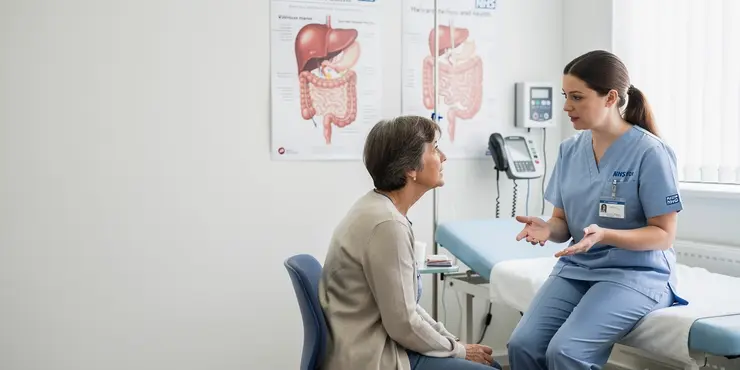
Is diet linked to the rise in bowel cancer?
Relevance: 47%
-
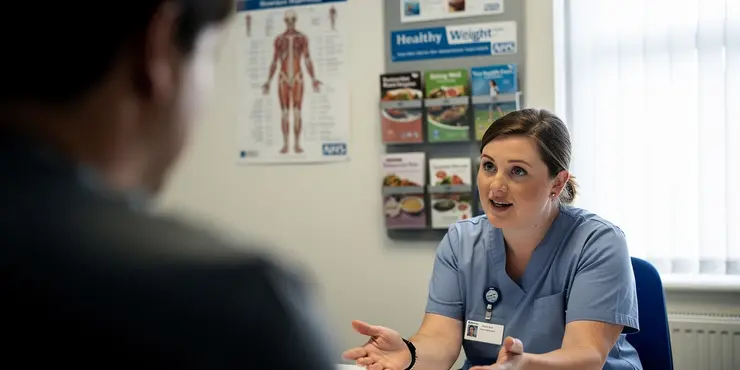
How does obesity affect bowel cancer rates?
Relevance: 47%
-

Taking a Genetic Family History - The Conversation (Bowel Cancer)
Relevance: 47%
-

Can exercise help slow down the progression of bowel cancer?
Relevance: 47%
-

Bowel cancer screening: Alan Titchmarsh and Tommy Walsh | NHS
Relevance: 46%
-
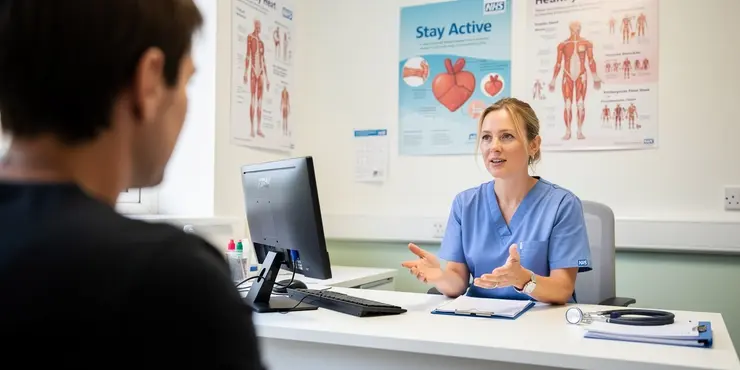
What types of exercise are beneficial for bowel cancer patients?
Relevance: 46%
-

Are there specific benefits of exercise for bowel cancer survivors?
Relevance: 45%
-

Can exercise help slow down the progression of bowel cancer?
Relevance: 45%
-
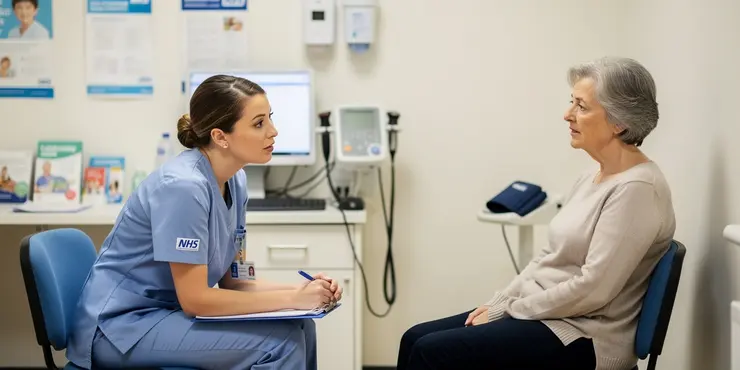
Bowel Cancer
Relevance: 45%
-
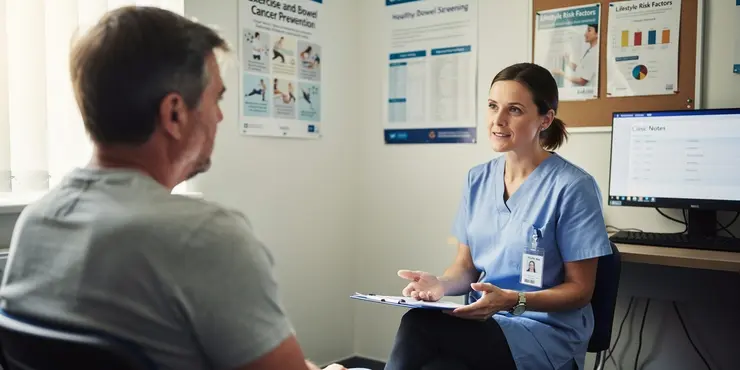
How does exercise impact bowel cancer progression?
Relevance: 44%
-
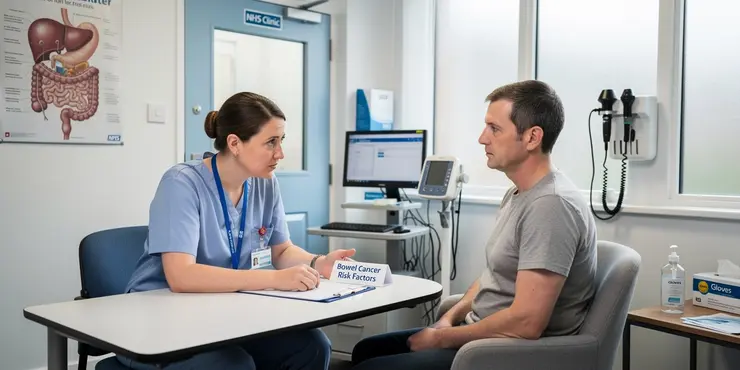
What factors are contributing to the increase in bowel cancer cases?
Relevance: 44%
-

What support is available for individuals diagnosed with bowel cancer?
Relevance: 44%
-
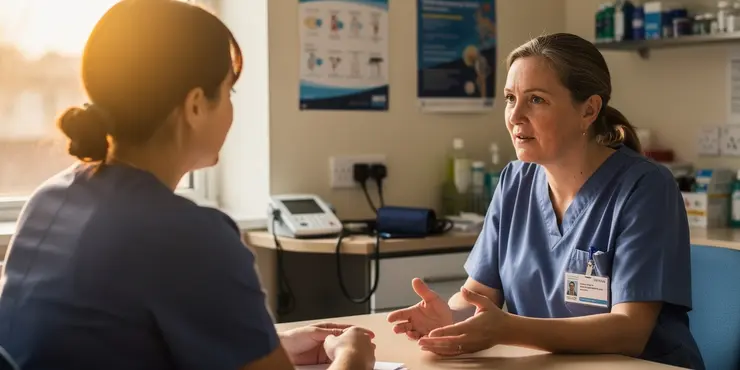
What are the side effects of bowel cancer treatment?
Relevance: 44%
-

How to do the FIT bowel cancer screening test | Cancer Research UK
Relevance: 44%
-
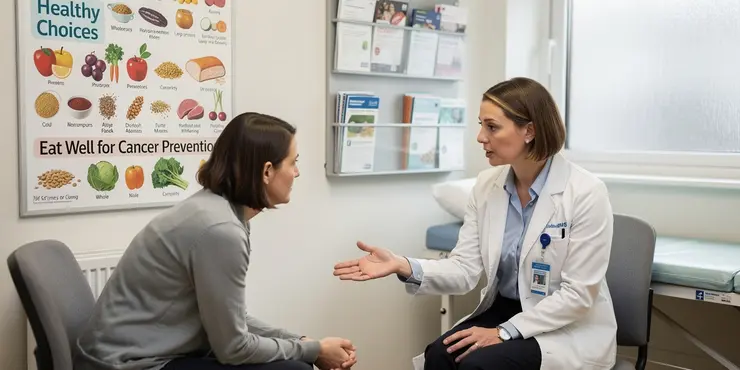
Can lifestyle changes help reduce bowel cancer risk?
Relevance: 43%
-

How does family history affect the risk of bowel cancer?
Relevance: 43%
-
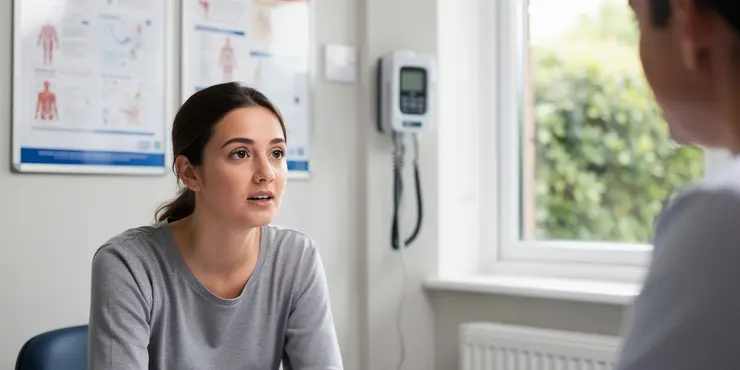
Are younger people being diagnosed with bowel cancer more frequently?
Relevance: 42%
-
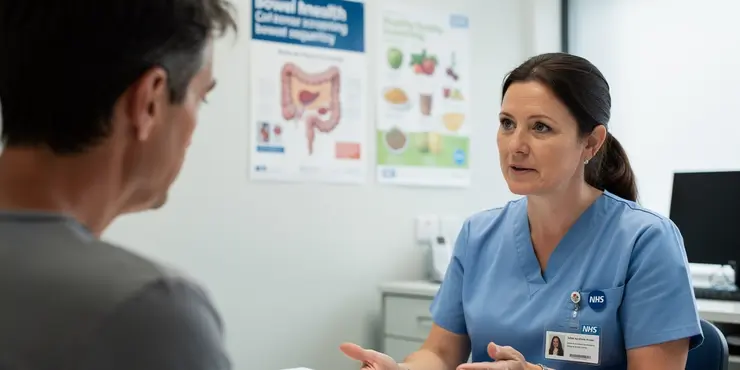
What role does diet play in the risk of developing bowel cancer?
Relevance: 42%
-

What lifestyle changes can help lower the risk of bowel cancer?
Relevance: 42%
-

What role does alcohol consumption play in bowel cancer risk?
Relevance: 42%
-
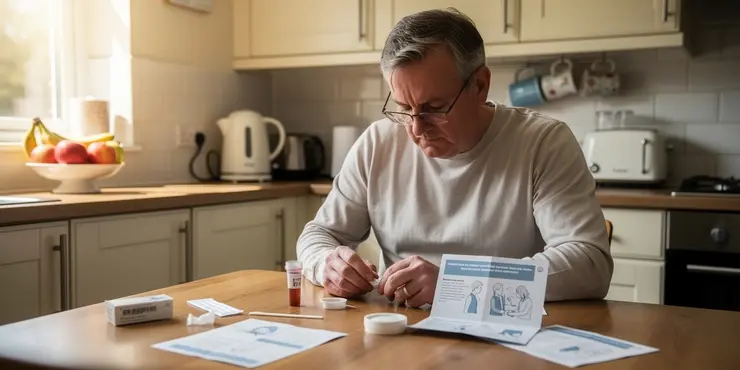
How to use the bowel cancer screening FIT kit | NHS
Relevance: 39%
-

What is colorectal cancer?
Relevance: 38%
-
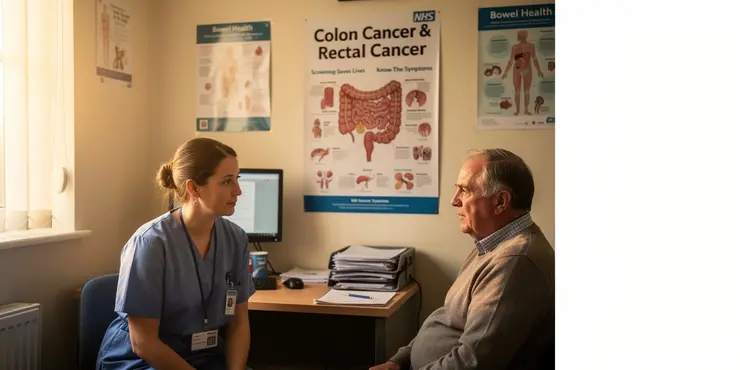
What is the difference between colon cancer and rectal cancer?
Relevance: 36%
-

What are the recommendations for colorectal cancer screening?
Relevance: 35%
-
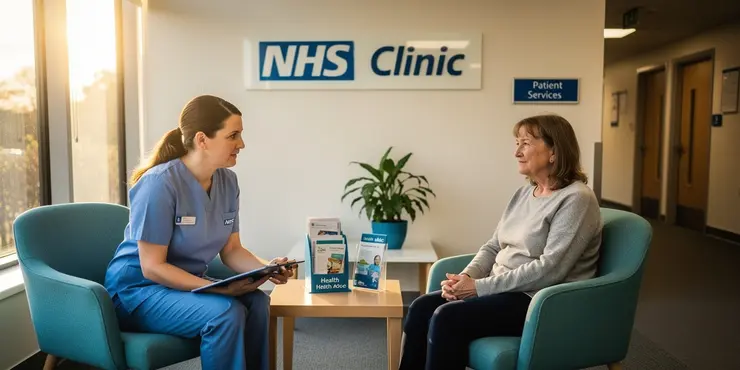
What is Cancer?
Relevance: 34%
Introduction
Bowel cancer, also known as colorectal cancer, is a common cancer diagnosed in the UK. Determining the stage of bowel cancer is crucial for planning treatment and predicting outcomes. Staging provides information about the size of the cancer, its spread to lymph nodes, and whether it has metastasised to other parts of the body.
Staging Systems
The most common staging systems used for bowel cancer are the TNM system and the number stage system. The TNM system, which stands for Tumour, Nodes, and Metastasis, is widely used by healthcare professionals. It classifies the cancer based on three key components: the size and extent of the primary tumour (T), whether the cancer has spread to nearby lymph nodes (N), and whether there is distant metastasis (M).
The number stage system ranges from Stage 1 to Stage 4, with Stage 1 being early cancer and Stage 4 indicating advanced cancer. Each stage provides crucial insights into how far the disease has developed.
TNM Staging Details
In the TNM system, the T component ranges from T1 to T4. T1 describes a cancer that has begun to grow into the inner layer of the bowel wall, while T4 indicates cancer that has penetrated the wall and spread to nearby tissues or organs. The N component ranges from N0 to N2. N0 means no lymph nodes are involved, whereas N2 indicates cancer in four or more nearby lymph nodes. The M component is either M0, meaning no distant spread, or M1, indicating metastasis to distant organs.
Number Stages
Stage 1 bowel cancer typically means the cancer is contained within the bowel and has not spread to the lymph nodes. Stage 2 indicates deeper growth into or through the bowel wall but no lymph node involvement. Stage 3 means the cancer has spread to nearby lymph nodes but not to distant parts of the body. Stage 4 signifies that the cancer has spread to distant organs such as the liver or lungs.
Diagnostic Methods
To determine the stage of bowel cancer, doctors use various diagnostic tools. These may include imaging tests like CT or MRI scans, colonoscopy, and biopsy. Blood tests may also be conducted to check for markers that indicate cancer's presence or extent. The results from these tests are collated to establish the stage, which aids in formulating an effective treatment plan.
Conclusion
Understanding and accurately determining the stage of bowel cancer is essential for effective treatment. It helps oncologists in the UK to customise treatment plans for patients, aiming to improve survival rates and quality of life. A comprehensive assessment through the TNM and number staging systems provides a detailed understanding of the cancer's progression, aiding in clinical decision-making.
Introduction
Bowel cancer is a type of cancer that happens in the part of the body where food is digested. Doctors need to know how big the cancer is and if it has spread to plan the best treatment. This helps them understand how serious it is and what to do next.
Staging Systems
There are two main systems to tell how serious bowel cancer is. One is called the TNM system. The other is called the number stage system. The TNM system looks at the size of the tumour (Tumour), if it has reached any lymph nodes (Nodes), and if it has spread to other parts of the body (Metastasis).
The number stage system goes from Stage 1 to Stage 4. Stage 1 means early cancer, and Stage 4 means advanced cancer. Each stage helps show how much the cancer has grown.
TNM Staging Details
In the TNM system, "T" tells how big the tumour is. T1 means the cancer is small and just started, while T4 means it has grown big and spread to nearby parts of the body. "N" shows if the cancer is in the lymph nodes. N0 means no lymph nodes are affected, and N2 means four or more lymph nodes have cancer. "M" tells if the cancer has spread far away. M0 means it has not spread, and M1 means it has gone to other parts of the body.
Number Stages
Stage 1 bowel cancer means the cancer is only in the bowel and not in the lymph nodes. Stage 2 means the cancer is deeper in the bowel but not in lymph nodes. Stage 3 shows the cancer has reached lymph nodes but not other body parts. Stage 4 means it has spread to faraway organs like the liver or lungs.
Diagnostic Methods
Doctors use tests to check the stage of bowel cancer. These tests can be scans like CT or MRI, or looking inside the bowel (colonoscopy), and taking a small sample (biopsy). Blood tests can also help. All the test results help doctors decide what stage the cancer is and how to treat it best.
Conclusion
Knowing the stage of bowel cancer is very important. It helps doctors give the best treatment to patients. This can help people live longer and feel better. By using both the TNM and number stage systems, doctors can understand more about how the cancer is growing and make good decisions for treatment.
Frequently Asked Questions
What is the purpose of staging in bowel cancer?
Staging helps determine the extent of bowel cancer, guides treatment options, and helps predict prognosis.
What are the main stages of bowel cancer?
The main stages are Stage 0, Stage I, Stage II, Stage III, and Stage IV, which describe the progression from least to most advanced.
What is Stage 0 bowel cancer?
Stage 0, or carcinoma in situ, means that cancerous cells are only in the innermost lining of the colon or rectum.
What defines Stage I bowel cancer?
Stage I cancer has spread into the layers of the colon or rectum wall but hasn't reached nearby lymph nodes or distant sites.
How is Stage II bowel cancer characterized?
Stage II cancer has penetrated the wall more deeply but still hasn't reached lymph nodes or distant organs.
What distinguishes Stage III bowel cancer?
Stage III cancer has spread to nearby lymph nodes but not to distant body parts.
What indicates Stage IV bowel cancer?
Stage IV cancer has metastasized to distant organs or tissues such as the liver or lungs.
How is bowel cancer staging determined?
Staging is determined through physical exams, imaging tests, biopsies, and sometimes surgical findings.
What role do imaging tests play in staging bowel cancer?
CT scans, MRIs, and PET scans help visualize the tumor's size, location, and possible spread to other organs.
Why is a biopsy important for staging?
A biopsy provides a tissue sample for pathology to confirm cancer type and grade, which are crucial for staging.
What is the TNM system in bowel cancer staging?
The TNM system classifies cancer by Tumor size (T), Node involvement (N), and Metastasis (M) to help standardize staging.
How does lymph node involvement affect bowel cancer staging?
Involvement of nearby lymph nodes generally indicates a more advanced stage and can affect the cancer's spread.
What is the importance of determining metastasis in bowel cancer?
Determining if the cancer has metastasized helps identify if it has spread to distant organs, impacting the treatment approach.
How is clinical staging different from pathological staging?
Clinical staging is based on exams and tests done before surgery, while pathological staging includes findings during and after surgery.
Can the stage of bowel cancer change over time?
Yes, initially diagnosed stages can be updated based on new findings or if the cancer progresses or recurs.
What is recurrent bowel cancer?
Recurrent cancer is cancer that has returned after treatment and can be located in the same or different part of the body.
Why is it important to accurately determine the stage of bowel cancer?
Accurate staging is crucial for developing an effective treatment plan and providing a prognosis.
How can molecular testing influence bowel cancer staging?
Molecular testing can provide additional genetic information about the cancer, potentially influencing treatment choices.
What role do blood tests play in staging bowel cancer?
Blood tests can detect tumor markers and evaluate organ function, supporting the overall assessment of cancer stage.
Can lifestyle factors affect bowel cancer staging?
While lifestyle factors don't change the stage, a healthy lifestyle can influence treatment outcomes and prognosis.
Why is staging important in bowel cancer?
Staging helps doctors know how much cancer there is and where it is in the body. This helps them decide the best treatment.
If you find it hard to read, you can:
- Ask someone to read it with you.
- Use a reading app to read the text out loud.
- Look up words you don't understand in a simple dictionary.
Staging is used to see how big bowel cancer is. It helps doctors choose the right treatment and tells us what might happen in the future.
What are the main stages of bowel cancer?
Bowel cancer is a sickness in the tummy. It happens in the large intestine.
Here are the main stages of bowel cancer:
- Stage 1: The cancer is only in the inside of the large intestine.
- Stage 2: The cancer has grown more. It might go to the outer layers of the intestine.
- Stage 3: The cancer has spread to nearby parts of the body like lymph nodes.
- Stage 4: The cancer has spread to other parts of the body, like the liver or lungs.
Helpful tools can include:
- Using simple words and pictures to understand it better.
- Talking to a doctor or nurse for more help.
There are five stages. They are called: Stage 0, Stage I, Stage II, Stage III, and Stage IV. Stage 0 is the first step, and Stage IV is the last step.
As the stages go from 0 to IV, it means things get more serious. Stage 0 is the beginning, and Stage IV is the most serious.
To help understand this better, you could use pictures or drawings to see how things change from one stage to the next. It can also help to talk with someone who knows a lot about it.
What is Stage 0 bowel cancer?
Stage 0 bowel cancer is the very first stage of cancer in the bowel. It is when there are some bad cells in the bowel, but they haven't spread. These bad cells are only on the inside layer of the bowel.
If you want to learn more or need help, you can:
- Ask a nurse or a doctor.
- Use pictures to understand better.
- Watch videos about Stage 0 bowel cancer.
- Talk to someone who has had bowel cancer.
Stage 0 cancer means that the bad cells are just in the very inside part of the colon or rectum.
What is Stage I Bowel Cancer?
Stage I bowel cancer means the cancer is in the first stage. This means the cancer is inside the bowel and has not spread.
If you want to know more, pictures or diagrams can help. You can also ask a nurse or a doctor to explain it to you.
Stage I cancer means the cancer is inside the wall of the colon or rectum. It has not moved to the lymph nodes or other parts of the body.
What is Stage II bowel cancer like?
Stage II bowel cancer means the cancer has grown bigger. It might be inside the wall of the bowel. But it has not spread to other parts of the body.
If you want to learn more, you can:
- Use picture books or videos to help understand.
- Ask a doctor or nurse to explain it to you.
- Write down or draw anything that confuses you.
- Talk with someone who knows a lot about cancer.
Stage 2 cancer has gone deeper into the body, but it hasn't reached the lymph nodes or other parts of the body yet.
What is Stage 3 bowel cancer?
Stage 3 bowel cancer means the cancer has spread to nearby lymph nodes. Lymph nodes are small glands that help your body fight germs.
Here are some easy ways to understand this stage:
- Cancer has moved beyond the bowel to lymph nodes.
- It has not spread to other parts of the body.
Tips to understand better: You can use pictures and diagrams, or ask a doctor to explain it to you. You can also watch videos about Stage 3 bowel cancer if that helps.
Stage III cancer means the cancer has moved to lymph nodes nearby. Lymph nodes are little parts of your body that help you stay healthy. The cancer has not moved to other parts far away in the body.
What Shows Stage 4 Bowel Cancer?
Stage 4 cancer has spread to other parts of the body like the liver or lungs.
Here are some ways to help understand this better:
- Use Pictures: Look at pictures of the body to see where the liver and lungs are.
- Ask Questions: If something is not clear, ask someone to explain it.
- Listen to Information: Try listening to an audio recording about cancer.
How do doctors know the stage of bowel cancer?
Doctors check how much the bowel cancer has grown and spread. This is called staging. Here’s how they find out:
- Doctors use special tools like scans and tests.
- They look at the cancer and where it is in the body.
- They check if the cancer has spread to other parts.
If you find this information hard to understand, you can:
- Ask a doctor or nurse to explain it to you.
- Use websites with pictures and videos.
- Talk to someone you trust.
Doctors find out the stage of a disease by doing different tests. They look at your body, take pictures inside your body, and sometimes take small pieces from inside to look at. Sometimes, they do surgery to find out more.
How do imaging tests help doctors understand bowel cancer?
CT scans, MRIs, and PET scans are pictures. These pictures help doctors see a tumor. They show how big it is and where it is. They can also show if the tumor has spread to other parts of the body.
Why do we need a biopsy to know the stage?
A biopsy takes a small piece of tissue from the body. This helps doctors check if there is cancer. It also shows what kind of cancer it is and how serious it might be. This information is important for understanding how far the cancer has spread.
What is the TNM system for bowel cancer?
The TNM system helps doctors understand how big the cancer is and if it has spread. It stands for:
- T - Tumor size: How big is the cancer?
- N - Nodes: Has the cancer spread to nearby areas?
- M - Metastasis: Has the cancer spread to other parts of the body?
Doctors use this information to plan treatment.
Support tools like picture diagrams and videos can help explain this system better.
The TNM system helps doctors understand how serious cancer is. It does this by looking at three things:
- Tumor size (T): How big is the cancer?
- Node involvement (N): Has the cancer spread to the lymph nodes?
- Metastasis (M): Has the cancer spread to other parts of the body?
This system helps everyone use the same words to talk about cancer stages.
How do lymph nodes change bowel cancer stages?
Cancer can spread to other parts of the body. If the cancer is in the nearby lymph nodes, it means the cancer is growing.
Why is it important to know if bowel cancer has spread?
Bowel cancer can sometimes move to other parts of the body. This is called spreading or metastasis.
Knowing if the cancer has spread helps doctors decide the best treatment. It can also tell us how serious the cancer is.
To understand more, you can use simple guides or ask a doctor to explain. Pictures and videos can also help.
Finding out if the cancer has spread to other parts of the body helps doctors make a treatment plan.
What is the difference between clinical staging and pathological staging?
Staging helps doctors find out how much cancer is in the body and where it is.
Clinical Staging: This is when doctors look at the cancer using exams and tests before any treatment. They might do scans or blood tests to see where the cancer is.
Pathological Staging: This is when doctors have more information after surgery. They look at the cancer under a microscope to see where it is and how much there is.
Both ways help doctors decide the best treatment. Ask for help or use tools like picture charts if you need support to understand more.
Doctors look at different things to stage cancer.
Before Surgery: They use exams and tests to see how much cancer there is. This is called clinical staging.
During and After Surgery: They find more about the cancer. This is called pathological staging.
Helpful Tip: It can be useful to use charts or drawings to understand this process better.
Can bowel cancer change later?
Yes, bowel cancer can change over time. It can grow bigger or spread to other parts of the body.
Helpful tips:
- If you have questions, ask your doctor to explain.
- Use pictures or charts to help understand the information better.
- Bring a friend or family member with you to appointments for support.
Yes, doctors may change the cancer stage if they find new information or if the cancer comes back or gets worse.
What is recurrent bowel cancer?
Recurrent bowel cancer means the cancer has come back after treatment. Bowel cancer is cancer that starts in the bowel, which is part of your tummy. If the cancer comes back, it is called “recurrent.”
To understand better, you can use these tools:
- Pictures: Look at pictures or diagrams of where the bowel is in your body.
- Talk to someone: Ask a doctor or nurse to explain more in simple words.
- Use simple language books: Find books that explain cancer in an easy way.
Recurrent cancer is when cancer comes back after being treated. It can come back in the same place or in a different part of the body.
Why is it important to know the stage of bowel cancer?
Understanding the stage of bowel cancer is very important. It helps doctors choose the best treatment. Knowing the stage tells how big the cancer is and if it has spread.
Here are some tools and tips that can help:
- Ask Questions: Talk to your doctor. Ask them to explain things in simple words.
- Use Pictures: Look at pictures or diagrams. They can show you what the doctors mean.
- Bring a Friend: Take someone with you to appointments. They can help you remember what is said.
- Write it Down: Take notes. Write down important things the doctor says.
It is very important to know how serious an illness is. This helps doctors make a good plan to help the person feel better. It also helps them know what might happen in the future.
How can tests help doctors understand bowel cancer?
Doctors use special tests to learn more about bowel cancer. These tests look at tiny parts called molecules. This helps doctors know how serious the cancer is.
Here are some ideas that can help:
- Talk to your doctor or nurse. They can explain test results in a simple way.
- Use pictures or drawings to understand what is happening.
- Ask for written notes with easy words if you need them.
Molecular tests can give doctors more information about the cancer's genes. This might help them choose the best treatment.
How do blood tests help find out how serious bowel cancer is?
Blood tests help doctors find special signs of cancer called tumor markers. They also check how well your organs are working. This helps doctors understand how much the cancer has grown.
Can the way we live change bowel cancer?
The way we live, like what we eat and how much we move, might change how serious bowel cancer is.
If you want to know more, here are some things that can help:
- Talk to a doctor or nurse.
- Look at simple health books or websites.
- Ask a family member or friend for help.
A healthy lifestyle does not change the stage of a disease. But it can help how well treatments work and what might happen afterwards.
Useful Links
This website offers general information and is not a substitute for professional advice.
Always seek guidance from qualified professionals.
If you have any medical concerns or need urgent help, contact a healthcare professional or emergency services immediately.
Some of this content was generated with AI assistance. We’ve done our best to keep it accurate, helpful, and human-friendly.
- Ergsy carfully checks the information in the videos we provide here.
- Videos shown by Youtube after a video has completed, have NOT been reviewed by ERGSY.
- To view, click the arrow in centre of video.
- Most of the videos you find here will have subtitles and/or closed captions available.
- You may need to turn these on, and choose your preferred language.
- Go to the video you'd like to watch.
- If closed captions (CC) are available, settings will be visible on the bottom right of the video player.
- To turn on Captions, click settings .
- To turn off Captions, click settings again.
More Items From Ergsy search
-

How is the stage of bowel cancer determined?
Relevance: 100%
-

What is the survival rate for bowel cancer?
Relevance: 60%
-

What is Bowel Cancer?
Relevance: 57%
-

What are the stages of testicular cancer?
Relevance: 56%
-

Bowel cancer - Symptoms and signs to look out for
Relevance: 54%
-

How common is bowel cancer?
Relevance: 54%
-

What factors determine the treatment plan for prostate cancer?
Relevance: 52%
-

What treatment options are available for bowel cancer?
Relevance: 52%
-

How does increased screening impact bowel cancer statistics?
Relevance: 51%
-

Can bowel cancer spread to other parts of the body?
Relevance: 51%
-

Why is there a surge in bowel cancer?
Relevance: 50%
-

Learn about bowel cancer (British Sign Language version)
Relevance: 50%
-

How is bowel cancer diagnosed?
Relevance: 50%
-

Can bowel cancer be prevented?
Relevance: 49%
-

What are the risk factors for bowel cancer?
Relevance: 47%
-

Is diet linked to the rise in bowel cancer?
Relevance: 47%
-

How does obesity affect bowel cancer rates?
Relevance: 47%
-

Taking a Genetic Family History - The Conversation (Bowel Cancer)
Relevance: 47%
-

Can exercise help slow down the progression of bowel cancer?
Relevance: 47%
-

Bowel cancer screening: Alan Titchmarsh and Tommy Walsh | NHS
Relevance: 46%
-

What types of exercise are beneficial for bowel cancer patients?
Relevance: 46%
-

Are there specific benefits of exercise for bowel cancer survivors?
Relevance: 45%
-

Can exercise help slow down the progression of bowel cancer?
Relevance: 45%
-

Bowel Cancer
Relevance: 45%
-

How does exercise impact bowel cancer progression?
Relevance: 44%
-

What factors are contributing to the increase in bowel cancer cases?
Relevance: 44%
-

What support is available for individuals diagnosed with bowel cancer?
Relevance: 44%
-

What are the side effects of bowel cancer treatment?
Relevance: 44%
-

How to do the FIT bowel cancer screening test | Cancer Research UK
Relevance: 44%
-

Can lifestyle changes help reduce bowel cancer risk?
Relevance: 43%
-

How does family history affect the risk of bowel cancer?
Relevance: 43%
-

Are younger people being diagnosed with bowel cancer more frequently?
Relevance: 42%
-

What role does diet play in the risk of developing bowel cancer?
Relevance: 42%
-

What lifestyle changes can help lower the risk of bowel cancer?
Relevance: 42%
-

What role does alcohol consumption play in bowel cancer risk?
Relevance: 42%
-

How to use the bowel cancer screening FIT kit | NHS
Relevance: 39%
-

What is colorectal cancer?
Relevance: 38%
-

What is the difference between colon cancer and rectal cancer?
Relevance: 36%
-

What are the recommendations for colorectal cancer screening?
Relevance: 35%
-

What is Cancer?
Relevance: 34%


